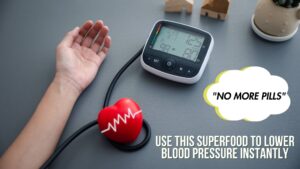Acid reflux can be an incredibly uncomfortable condition, affecting millions of people worldwide. A burning sensation in the chest or the sour taste of stomach acid in your mouth, dealing with acid reflux can disrupt your daily life. The good news is, you don’t always have to rely on medication to find relief. In fact, you may already have two powerful ingredients in your kitchen that can help alleviate acid reflux naturally. In this we’ll get to know what acid reflux is, how simple ingredients can help, and offer practical advice on managing it with natural remedies.
Understanding Acid Reflux: Causes and Symptoms You Need to Know
Acid reflux occurs when the lower esophageal sphincter (LES), which separates the stomach and esophagus, weakens or relaxes improperly. This allows stomach acid to flow back into the esophagus, leading to symptoms like heartburn (burning sensation in the chest), regurgitation (sour taste in the mouth), bloating (fullness after meals), and coughing or wheezing (irritation of the airways).
Several factors contribute to acid reflux, including overeating, smoking, stress, and obesity. Foods like spicy, fatty, or acidic foods, as well as chocolate, caffeine, and alcohol, can trigger symptoms. Understanding these triggers is essential for managing the condition effectively.
By recognizing the causes and symptoms, you can take steps to manage acid reflux through lifestyle changes and dietary adjustments.
Power of Natural Remedies: How Two Simple Ingredients Help with Acid Reflux
While acid reflux is often treated with over-the-counter medications like antacids or proton pump inhibitors, there are natural remedies that can provide relief without the need for prescriptions. Two common ingredients found in most kitchens—baking soda and apple cider vinegar (ACV)—have been used for generations to ease symptoms of reflux.
Baking Soda
Baking soda, or sodium bicarbonate, is an alkaline substance that can neutralize stomach acid. When mixed with water, it creates a temporary balance in your stomach’s pH, offering fast relief from heartburn and other acid reflux symptoms. The best part is, it’s a natural remedy with minimal side effects when used in moderation.
Apple Cider Vinegar (ACV)
Although it may sound counterintuitive to use something acidic to neutralize acid reflux, ACV can help balance your stomach’s pH levels. It stimulates your digestive system, helping to break down food more efficiently and promoting proper acid levels. Many people find that adding a small amount of ACV to water before meals can reduce symptoms of acid reflux.
Step-by-Step Guide: Using Ingredients You Already Have to Relieve Acid Reflux
For a natural way to relieve acid reflux, you may already have two powerful ingredients in your kitchen. Baking soda and apple cider vinegar (ACV) are widely used for digestive health, and they can help neutralize stomach acid and balance your system. Here’s a more detailed guide on how to use them for acid reflux relief:
Baking Soda Solution
Ingredients:
- 1/2 teaspoon of baking soda
- 1 cup of water
Instructions:
- Start by adding 1/2 teaspoon of baking soda into a glass of water.
- Stir the mixture until the baking soda is fully dissolved.
- Slowly drink the mixture, taking small sips.
- After a few minutes, you should begin to feel relief from heartburn and acid reflux symptoms.
Why It Works: Baking soda is a natural alkaline substance that neutralizes stomach acid. It can provide fast relief from heartburn by temporarily balancing the stomach’s pH levels. It’s important to use this remedy in moderation. Overusing baking soda can disrupt your electrolyte balance, so avoid relying on it frequently.
Apple Cider Vinegar Drink
Ingredients:
- 1-2 tablespoons of apple cider vinegar
- 1 cup of warm water
- 1 teaspoon of honey (optional, for taste)
Instructions:
- Mix 1-2 tablespoons of apple cider vinegar with a cup of warm water.
- Optionally, you can add 1 teaspoon of honey to help improve the taste and make it easier to drink.
- Stir well, and drink the mixture before meals to help prevent acid reflux.
Why It Works: It may sound counterintuitive, but apple cider vinegar, though acidic, can help balance stomach acid production. When consumed, ACV stimulates your digestive system, encouraging the production of stomach acid necessary for proper digestion. By promoting the right level of stomach acid, ACV helps to prevent the backup of acid into the esophagus, thus reducing the chance of acid reflux.
These simple, natural ingredients can be effective in providing relief from acid reflux without relying on medications. It’s important to consult with your healthcare provider if symptoms persist or worsen, as prolonged acid reflux may require further medical attention.
Why Over-the-Counter Medications Aren’t Always the Best Solution for Acid Reflux
While over-the-counter (OTC) medications, like antacids and proton pump inhibitors (PPIs), can offer temporary relief from acid reflux, they don’t address the root cause of the problem. Prolonged use of these medications can also have negative side effects, including:
- Weakened bone density due to reduced calcium absorption.
- Kidney problems from long-term use of PPIs.
- Nutrient deficiencies, particularly of magnesium and vitamin B12.
Relying on medication for acid reflux doesn’t promote long-term solutions or lifestyle changes that could help prevent future flare-ups. Natural remedies like baking soda and apple cider vinegar provide a safer and more holistic approach to managing symptoms.
Natural Solutions for Acid Reflux: How to Find Relief Without Prescriptions
While using simple kitchen ingredients can be effective, there are other natural solutions to help manage acid reflux without the need for prescriptions. Some strategies include:
- Aloe Vera: Drinking aloe vera juice can soothe the esophagus and stomach, helping to reduce inflammation.
- Ginger: Known for its anti-inflammatory properties, ginger can help reduce nausea and inflammation associated with acid reflux.
- Chamomile Tea: Drinking chamomile tea before bed can help calm the stomach and ease symptoms of acid reflux.
- Almonds: Eating a handful of almonds after meals can help neutralize stomach acid and promote better digestion.
Incorporating these natural remedies into your routine, along with baking soda and apple cider vinegar, can help you achieve lasting relief from acid reflux symptoms.
Prevent Acid Reflux Attacks: Simple Dietary Changes to Support Your Digestive Health
Managing acid reflux is not only about finding relief from symptoms—it’s also about preventing future flare-ups. Here are some simple dietary changes that can support your digestive health and reduce the likelihood of acid reflux:
- Eat smaller meals: Large meals can put pressure on the LES, leading to acid reflux. Opt for smaller, more frequent meals.
- Avoid trigger foods: Certain foods like citrus, spicy dishes, chocolate, caffeine, and alcohol can worsen acid reflux symptoms.
- Stay upright after eating: Avoid lying down immediately after meals. Give your body time to digest food while sitting or standing.
- Incorporate more fiber: Fiber-rich foods like vegetables, fruits, and whole grains can help keep your digestive system in balance and reduce the chances of acid reflux.
Managing acid reflux doesn’t always require medication—simple, natural remedies like baking soda and apple cider vinegar can provide quick and effective relief. By understanding the causes and symptoms of acid reflux and incorporating these easy-to-use ingredients, you can take control of your digestive health and find lasting relief.
How to Boost Digestive Health Naturally With This Forgotten Herb
FAQs
What is acid reflux?
Acid reflux occurs when stomach acid flows backward into the esophagus, causing irritation and a burning sensation in the chest or throat, commonly known as heartburn.
What are the main causes of acid reflux?
Common causes include a weakened lower esophageal sphincter (LES), overeating, consuming spicy or fatty foods, obesity, smoking, pregnancy, and stress.
What are the symptoms of acid reflux?
Symptoms include heartburn, regurgitation (sour taste in the mouth), bloating, coughing, chest pain, and difficulty swallowing.
Is acid reflux the same as GERD?
Gastroesophageal reflux disease (GERD) is a more severe, chronic form of acid reflux. If acid reflux occurs frequently and disrupts daily life, it may be diagnosed as GERD.
How can I naturally relieve acid reflux?
You can try natural remedies like drinking baking soda mixed with water, consuming apple cider vinegar, and eating smaller meals to help alleviate acid reflux symptoms.
Can diet impact acid reflux?
Yes, certain foods can trigger acid reflux, such as citrus fruits, chocolate, spicy foods, alcohol, and caffeine. Avoiding these can help reduce symptoms.
Are there any lifestyle changes that can help with acid reflux?
Maintaining a healthy weight, avoiding large meals before bed, staying upright after meals, and managing stress can all help control acid reflux.
Is it safe to use baking soda for acid reflux?
Baking soda can provide temporary relief by neutralizing stomach acid, but it should be used in moderation to avoid imbalances in electrolytes or other side effects.
Can acid reflux cause other health problems?
Over time, untreated acid reflux or GERD can lead to more serious issues like esophageal damage, ulcers, or even an increased risk of esophageal cancer.
When should I see a doctor for acid reflux?
If acid reflux symptoms persist for more than a few weeks, become severe, or interfere with daily life, it’s important to consult a healthcare professional for proper diagnosis and treatment options.






